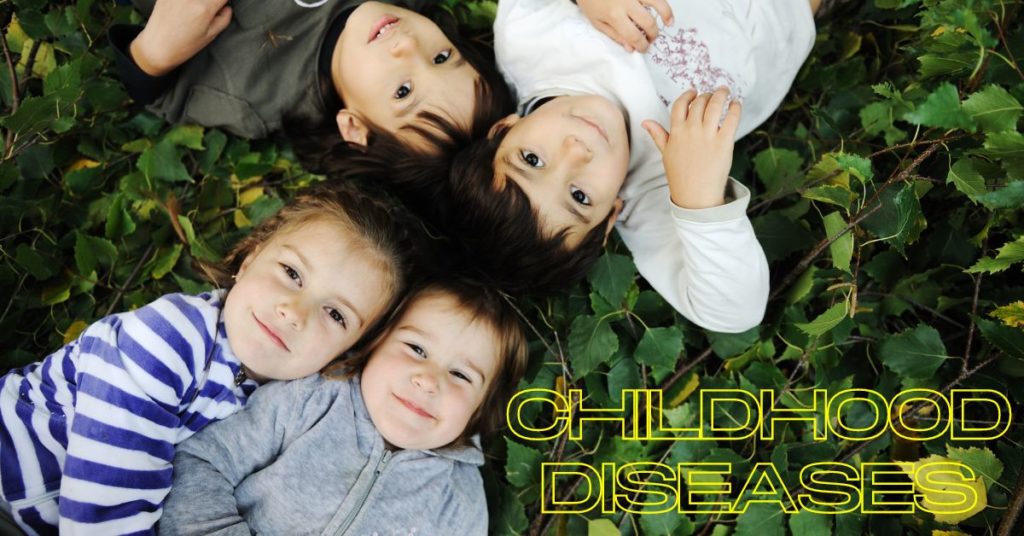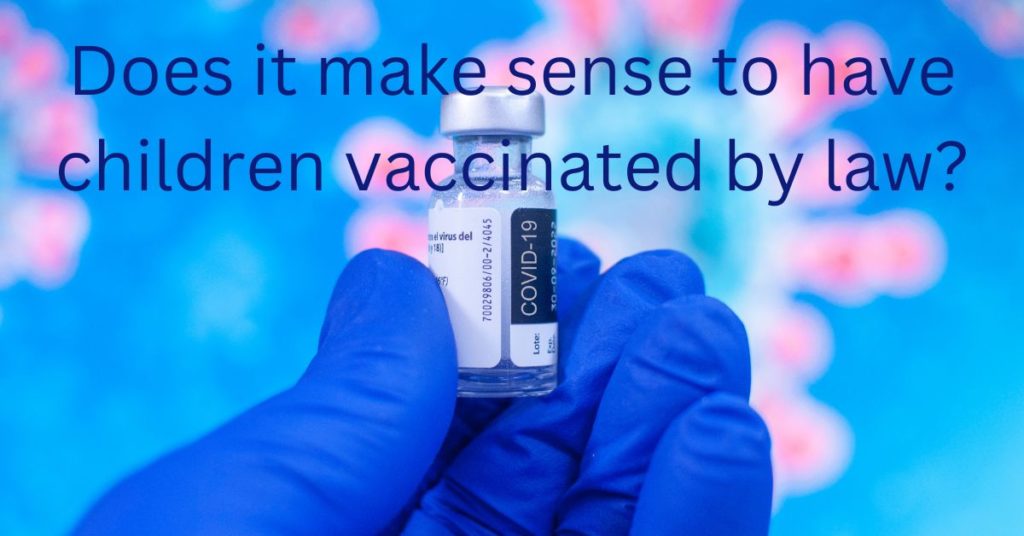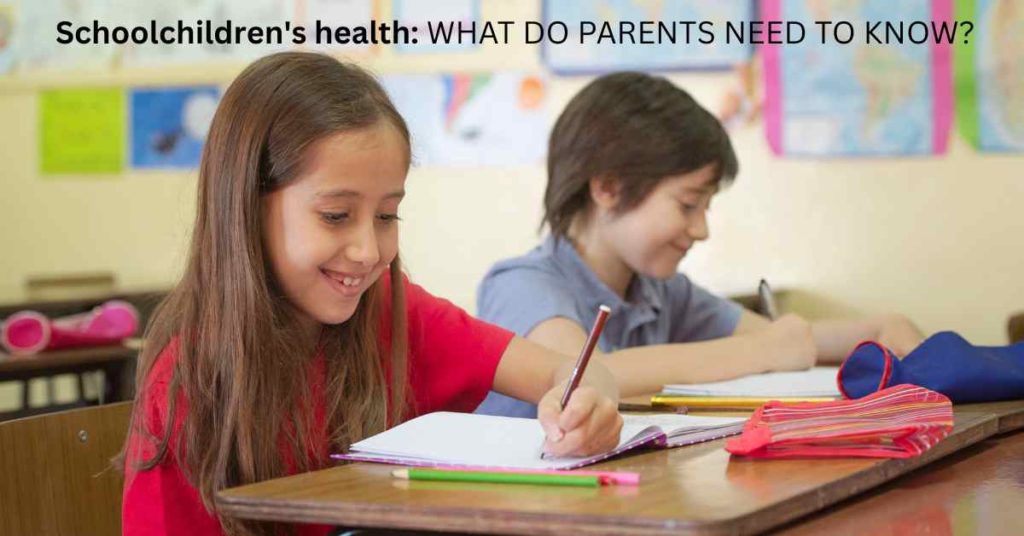The topic of Childhood Diseases is very up-to-date. Nowadays, all parents know: how stressful it is when their children are sick. High fever, skin rash, lymph node inflammation, diarrhea – all these symptoms and sleepless nights are so familiar to us. What can and what should we do to protect our children from diseases? What should we do to keep our children healthy? Many parents ask this question. I will answer these questions for you in this short conversation on a current topic.
In the beginning, I will give you an explanation: what do children’s diseases mean, what types of children’s diseases are there and why do children’s diseases occur? Then I will tell you how the interaction between the child’s body and the outside world works, and what immunity means. Then I will tell you about the possible role of childhood illnesses or what role illnesses play in the child’s life, and the relationship between childhood illnesses and vaccinations. Finally, I will give you my own opinion on this subject, because during my many years of practice as a pediatrician I have gained a lot of experience.
Childhood diseases are a special group of infectious diseases that occur most of the time in childhood and are so highly contagious that they are usually accompanied by high fever, rash, lymph node inflammation, and cough, and typically confer lifelong immunity. Adults can also get childhood illnesses if they didn’t acquire immunity to these infections during childhood. In addition, not all infectious diseases that occur in childhood are called childhood diseases.
What are the 7 common childhood diseases?
The “classic childhood diseases” are Measles, Mumps, Rubella, Chickenpox, Scarlet fever, Whooping cough, and Poliomyelitis. They are classified as Infectious diseases that are triggered by viruses or bacteria and transmitted by contagion. Childhood diseases are a result of the interaction of the children’s bodies and environment. When a child is born, its acquaintance with the outside world begins, where live many microbes (bacteria and viruses). This knowledge is realized through the child’s immune system, which reacts to the microbe and forms the antibodies that protect the child.
There are 2 sides to this interaction: positive and negative effects on the child’s body. The results of this interaction depend on 2 factors: the first – pathogenicity of the microbe, and the second – how strong the child’s immunity is. It is known that children’s immune system is incomplete up to the age of 3 and cannot properly protect the body against harmful microbes. That’s why childhood illnesses occur.
There are opinions in the medical community that normal passage through classic childhood diseases such as Chickenpox, Scarlet fever, and Rubella with recovery plays an important role for children: childhood diseases stimulate the development and strengthening of the immune system. After a childhood illness, lifelong immunity is formed that protects adolescents and adults, in their age complications occur much more frequently than in childhood.
Another important argument is that due to the strengthening of immunity, allergy, and autoimmune diseases, tumors occur less frequently in later life. But there is not enough scientific evidence on this subject. Only a few studies show the following: inflammatory diseases: febrile infections, viral infections of the upper respiratory tract in the first 2 years of life go with little risk of allergy, asthma, multiple sclerosis, malignant tumor, leukemia in older children. (Williams 2004, Mutius 1998, Ponsonby 2005, Gilham 2005, Vargas 2005).
On the other hand, many childhood diseases are harmful to children and lead to complications: carditis, meningitis, paralysis, disability, and death. Pathogenicity or damage to microbes varies greatly in degree. There are a few pathogenic agents, such as Rubella, Chickenpox, and highly pathogenic – Diphtheria, Poliomyelitis, Whooping cough, and Measles, which are dangerous and can lead to possible complications.
While working as a doctor, I observed the following: viral infections especially Measles and Rubella cause often such pathology as diabetes, kidney inflammation, and rheumatoid arthritis, which are autoimmune diseases. It means that these types of “Childhood infection” diseases interfere with the functioning of the immune system, thus triggering the autoimmune mechanism.
To avoid disturbances in the immune system after the infections and escape the risks of severe complications, there are vaccinations, after which a stable immunity develops.
Measles, mumps, rubella, and chickenpox – this is not a complete list (about 13 infections more), against which there are effective vaccinations. Today, classic childhood diseases occur less and less frequently in countries with high medical standards, and high social status. Nevertheless, there are always outbreaks, because the collective immunity is not yet high enough because of the refusal of vaccinations. For example, today, only about 70% of children in Europe are vaccinated. This is not enough to control infections. That’s why about 400 children die of Measles in the world every day.
Conclusions
Finally, I would like to say that the strengthening of immunity occurs when the child’s body comes into contact with bacteria and viruses. There are 2 ways to develop the child’s immune system: childhood diseases and vaccinations. The last way is not dangerous as the first.
From my own experience, I can say that if children have no contraindications and are vaccinated according to plan in compliance with all medical norms, stable immunity develops. It does not make sense to prevent childhood diseases but to prevent complications of these diseases has a sense. That is why it is necessary to provide children with a healthy lifestyle (healthy diet, sufficient exercise in the fresh air, sufficient sleep, positive emotions without stress). It helps along with vaccination keep our children in healthy conditions.
If you wish to learn more about child health creation, please visit my research platform here.






Pingback: (2022) Does It Make Sense To Have Children Vaccinated By Law? Practical Recommendations | Childhealthcreation.com | How To Grow A Healthy Child?